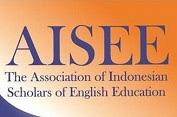Out-of-Class Oral Communication Strategies Among Indonesian Undergraduate EFL Students
DOI:
https://doi.org/10.36706/jele.v10i2.12Keywords:
oral communication strategies, out-of-class, Indonesian undergraduate EFL studentsAbstract
The topic of oral communication strategies in foreign language education has always been fascinating. While numerous studies have been conducted worldwide, there is a lack of research in the Indonesian context. This study aimed to explore the types and levels of oral communication strategies employed by Indonesian EFL undergraduate students. It also aimed to examine the relationships between students’ self-perceived speaking skills, self-perceived vocabulary size, and their use of oral communication strategies. A quantitative approach was used, and a survey was administered to 87 participants from three different higher education institutions. The findings revealed that out of the 15 oral communication strategy categories, ‘social affective strategies’, ‘negotiation for meaning while speaking’, and ‘message reduction and alteration strategies’, were among the most frequently used while ‘message abandonment strategies’, ‘fluency-maintaining strategies’, and ‘accuracy-oriented strategies’ were among the least frequently employed. Statistical analyses indicated no correlation between students’ self-perceived speaking skills and their communication strategies, as well as no correlation between self-perceived vocabulary size and oral communication strategies. Practical implications for EFL teachers and students in the tertiary education context are put forward.
Downloads
Published
Issue
Section
License

This work is licensed under a Creative Commons Attribution-ShareAlike 4.0 International License.













